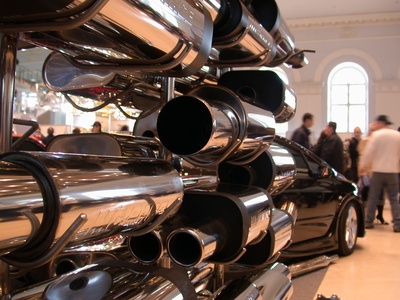
Wisconsin regulates emissions controls on all passenger and commercial vehicles operating within the state. In order for a vehicle to be legal to operate on the road, it must be in compliance with W-VIP (Wisconsin Vehicle Inspection Program) requirements.
Wisconsin began emissions testing of vehicles in 1984. The program is intended to help reduce pollution. The program's testing routines have been changing to reflect new technologies. In 1984 the program utilized an idle-only test.
As of 2008 W-VIP performs onboard diagnostic (OBD-II) inspection exclusively. This testing will work on any vehicle manufactured since 1996. In addition to testing passenger gasoline engine vehicles, since 2007 W-VIP has been testing OBD-II-compliant diesel vehicles, as well as OBD-II-compliant vehicles weighing up to 14,000 pounds. Wisconsin emissions standards are found in Chapter 110 of the Wisconsin Statutes, Sections 110.20, and 110.215. Emission limitations for vehicles are in Section 285.30(2).
Wisconsin exempts any car model made in 1995 and earlier from emissions inspections under Wisconsin Statutes 285.30(5)(a). In addition, vehicles used as farm tractors, mopeds, motorcycles, farm trucks, off-road only utility vehicles and neighborhood electric vehicles are exempted from emissions standards. All others are required to have pollution-control equipment. The vehicle will not be eligible for registration if it does not have the required pollution-control device installed. If the device has been removed, it must be restored. If an owner tampers with the emissions device, that motor vehicle's registration may be suspended or cancelled under 285.30(6).
If a vehicle fails testing, it must be repaired, and then W-VIP will reinspect. W-VIP will provide motorists with information to assist in diagnosis and repair of a failing vehicle. A vehicle may be tested up to three times at no charge. Additional testing will incur a $15 fee.